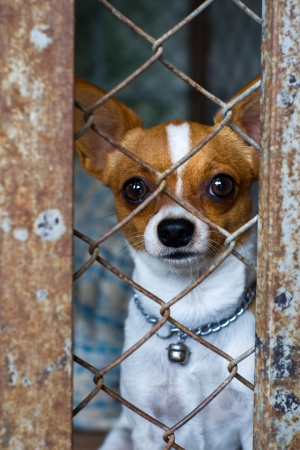1. Understanding the UK Law on Exotic Pet Ownership
If you’re considering keeping an exotic pet in the UK, it’s essential to understand the legal landscape that governs such ownership. The cornerstone of these regulations is the Dangerous Wild Animals Act 1976 (DWAA), a piece of legislation designed to protect both public safety and animal welfare. Under the DWAA, certain species considered potentially hazardous—such as large reptiles, primates, or big cats—require a specific licence from your local council before they can be lawfully kept as pets. Alongside the DWAA, owners must also comply with other key regulations, including those under the Animal Welfare Act 2006, which sets out general standards for animal care and well-being. Councils may impose additional conditions tailored to each application, covering aspects like enclosure security, veterinary arrangements, and environmental enrichment. Failing to follow these rules not only risks prosecution but may also endanger both people and animals. By familiarising yourself with these laws at the outset, you lay a strong foundation for a safe, responsible, and legally compliant journey into exotic pet ownership in the UK.
Identifying Species Requiring a Licence
When considering keeping an exotic pet in the UK, it is crucial to understand which species are subject to licensing under the Dangerous Wild Animals Act 1976. Not all unusual pets require a licence, but many do, depending on their potential risk to humans or the environment. Generally, an “exotic pet” refers to any animal that is not commonly domesticated in the UK—this includes certain reptiles, mammals, birds, and amphibians originating from outside Europe or those with wild characteristics.
What Qualifies as an Exotic Pet?
An exotic pet is typically defined as a non-native species or one that has not been selectively bred over generations for companionship. These animals often have specialised care needs and may pose safety or environmental concerns. The UK government maintains a list of animals that require a licence due to their classification as dangerous or potentially harmful.
Examples of Animals That Require a Licence
| Species | Example Animals | Licence Required? |
|---|---|---|
| Mammals | Big cats (lions, tigers), primates (macaques), wolves | Yes |
| Reptiles | Crocodiles, venomous snakes (cobras, vipers) | Yes |
| Birds | Large raptors (eagles), ostriches | Sometimes (depends on species) |
| Amphibians | Poison dart frogs (certain species) | Sometimes (depends on toxicity) |
Examples of Animals That Do Not Require a Licence
| Species | Example Animals | Licence Required? |
|---|---|---|
| Mammals | Guinea pigs, rabbits, hamsters, ferrets | No |
| Reptiles | Corn snakes, bearded dragons, leopard geckos | No (if non-venomous and not restricted) |
| Birds | Budgees, canaries, parrots (most species) | No (if not endangered or protected) |
| Fish & Invertebrates | Tropical fish, tarantulas (most species) | No (unless specified otherwise) |
Pitfalls to Avoid When Identifying Species
The rules surrounding exotic pets and licences can change as new species are introduced or reclassified. It is advisable to check with your local council and consult official guidance before acquiring any unusual pet. Failing to obtain the correct licence can result in legal action and confiscation of the animal. Always stay informed and seek professional advice if you are unsure about your chosen species.

3. Application Process for an Exotic Pet Licence
Step-by-Step Guide to Applying for a Licence
The process of obtaining an exotic pet licence in the UK is governed by strict regulations to ensure both public safety and animal welfare. To help you navigate the system, here is a comprehensive step-by-step guide:
Step 1: Contact Your Local Authority
Your first port of call should be your local council, as they are responsible for issuing exotic pet licences under the Dangerous Wild Animals Act 1976. Each council may have slightly different requirements, so check their official website or contact the relevant department directly.
Step 2: Gather Essential Documentation
You will need to prepare various documents, including proof of identity, evidence of suitable accommodation for the animal, and details regarding your experience and qualifications in caring for the specific species. Some councils may also request references from veterinary professionals or animal welfare organisations.
Step 3: Complete the Application Form
The application form will require detailed information about the animal(s) you intend to keep, including species, age, sex, and origin. Be thorough and accurate, as incomplete forms can delay the process. Most local authorities provide these forms online for ease of access.
Step 4: Pay the Required Fees
An application fee is payable upon submission. The amount varies depending on your local authority but generally ranges from £100 to £400. This fee covers administrative costs and initial inspections. Be sure to retain proof of payment for your records.
Step 5: Undergo an Inspection
Once your application is received, an authorised inspector—often a council-appointed veterinary surgeon—will visit your premises. They will assess whether your facilities meet legal standards for security, hygiene, and animal welfare. Any deficiencies must be addressed before approval can be granted.
Step 6: Await Decision and Further Steps
If your premises pass inspection and all paperwork is in order, your licence will be issued with specific conditions tailored to your situation. You may be required to submit to regular follow-up inspections or provide ongoing reports on your animal’s health and wellbeing.
Important Note
The entire process can take several weeks or even months, depending on local authority workload and whether additional information or adjustments are needed. It is vital to begin well in advance of acquiring any exotic animal and maintain open communication with officials throughout.
4. Animal Welfare and Housing Standards
When applying for a licence to keep exotic pets in the UK, strict adherence to animal welfare and housing standards is essential. Local authorities assess not only the suitability of the species but also the applicant’s ability to provide an environment that meets all regulatory requirements under the Animal Welfare Act 2006 and related guidance.
Core Welfare Standards
Owners must demonstrate that they can meet the Five Welfare Needs, which are fundamental for any licensed exotic pet:
| Welfare Need | Description |
|---|---|
| Suitable Environment | Providing a habitat that replicates natural conditions, including temperature, humidity, lighting, and space. |
| Suitable Diet | Ensuring access to proper nutrition and clean water, tailored to the species’ specific needs. |
| Ability to Exhibit Normal Behaviour | Allowing space and enrichment so animals can express natural behaviours such as climbing, digging, or flying. |
| Protection from Pain, Suffering, Injury or Disease | Implementing regular health checks, prompt veterinary care, and maintaining hygiene to prevent illness. |
| Housing with or apart from Other Animals | Appropriate social grouping according to species—some may need solitary housing while others require company. |
Housing Requirements: Inspections and Documentation
Council officers will conduct thorough inspections before granting or renewing a licence. You will be expected to provide evidence of:
- Escape-proof enclosures with secure locks and barriers appropriate for the species’ strength and abilities.
- Sufficient ventilation, heating/cooling systems, and UV lighting where necessary.
- Enrichment materials such as branches, substrates, or pools to encourage activity and reduce stress.
- A comprehensive cleaning schedule and record of maintenance routines.
- Written emergency plans covering escape scenarios, fire safety, and health emergencies.
Retention of Licence: Ongoing Compliance Matters
The responsibility does not end after obtaining the initial licence. Annual inspections may be carried out unannounced to ensure ongoing compliance. Failure to uphold these standards could result in penalties or revocation of your licence. Therefore, keeping accurate records of feeding regimes, veterinary visits, and enclosure maintenance is strongly advised for all exotic pet owners in the UK.
5. Common Pitfalls and How to Avoid Them
Typical Mistakes in the Application Process
Many aspiring exotic pet owners in the UK encounter stumbling blocks during the licence application process. A common error is submitting incomplete or inaccurate documentation, such as missing proof of suitable accommodation for the animal or failing to provide evidence of specialist veterinary care. Overlooking local authority requirements—for example, not consulting with neighbours or neglecting necessary risk assessments—can also lead to setbacks.
Addressing Refusals and Appeals
If your application is refused, do not panic. Local authorities must provide reasons for their decision, often highlighting specific shortcomings. Take time to review these comments carefully and address each point thoroughly in your appeal. You may need to supply additional evidence, revise your enclosure plans, or clarify your experience with exotic species. Engaging with a qualified solicitor experienced in animal licensing can be invaluable at this stage.
Tips for a Successful Application
- Research Thoroughly: Understand your chosen species’ welfare needs and all relevant UK legal requirements before applying.
- Consult Professionals: Seek advice from exotic pet veterinarians and reputable breeders to demonstrate due diligence.
- Prepare Comprehensive Documentation: Include detailed plans of enclosures, feeding regimens, and emergency protocols.
- Engage Early with Your Council: Open communication with local authorities can help clarify expectations and avoid misunderstandings.
- Be Transparent: Honesty about your level of experience and willingness to learn is viewed favourably by licensing officers.
The Bottom Line
Avoiding common pitfalls requires careful preparation, attention to detail, and proactive engagement with all stakeholders. By following best practices and learning from others’ mistakes, you greatly improve your chances of securing a licence and providing a safe home for your exotic pet.
6. Ongoing Responsibilities and Compliance Checks
Securing a licence to keep exotic pets in the UK is only the beginning of your legal obligations as an owner. To ensure the welfare of these unique animals and protect public safety, licence holders must adhere to a series of ongoing responsibilities.
Summary of Legal Duties
After your licence is granted, you are legally bound to maintain high standards of animal welfare, proper accommodation, and safe handling at all times. This means providing adequate nutrition, veterinary care, environmental enrichment, and security measures to prevent escapes or harm. It’s crucial to regularly review your practices against the latest guidance from local authorities and animal welfare organisations.
Compliance Inspections
Local councils conduct routine and unannounced inspections to ensure that all conditions stipulated in your licence are met. Inspectors may check enclosure safety, cleanliness, record-keeping, animal health, and emergency procedures. You should keep detailed records of feeding, health checks, and any incidents involving your exotic pets to demonstrate compliance during these visits.
Potential Penalties for Breaches
Failure to comply with the terms of your licence can have serious consequences. Councils have the authority to issue improvement notices or revoke your licence entirely if breaches are discovered. In more severe cases—such as where public safety is endangered or animal suffering occurs—you may face prosecution under the Dangerous Wild Animals Act 1976 or the Animal Welfare Act 2006. Penalties can include hefty fines, disqualification from keeping animals, or even imprisonment for significant offences.
Staying Informed and Proactive
As best practice, stay updated with any changes in legislation or local policies regarding exotic pet ownership. Attend training sessions when available and consult with veterinary professionals who specialise in exotic species. By taking a proactive approach to compliance, you not only avoid legal trouble but also promote the health and wellbeing of your animals—ensuring that your experience as an exotic pet keeper remains both rewarding and responsible.


